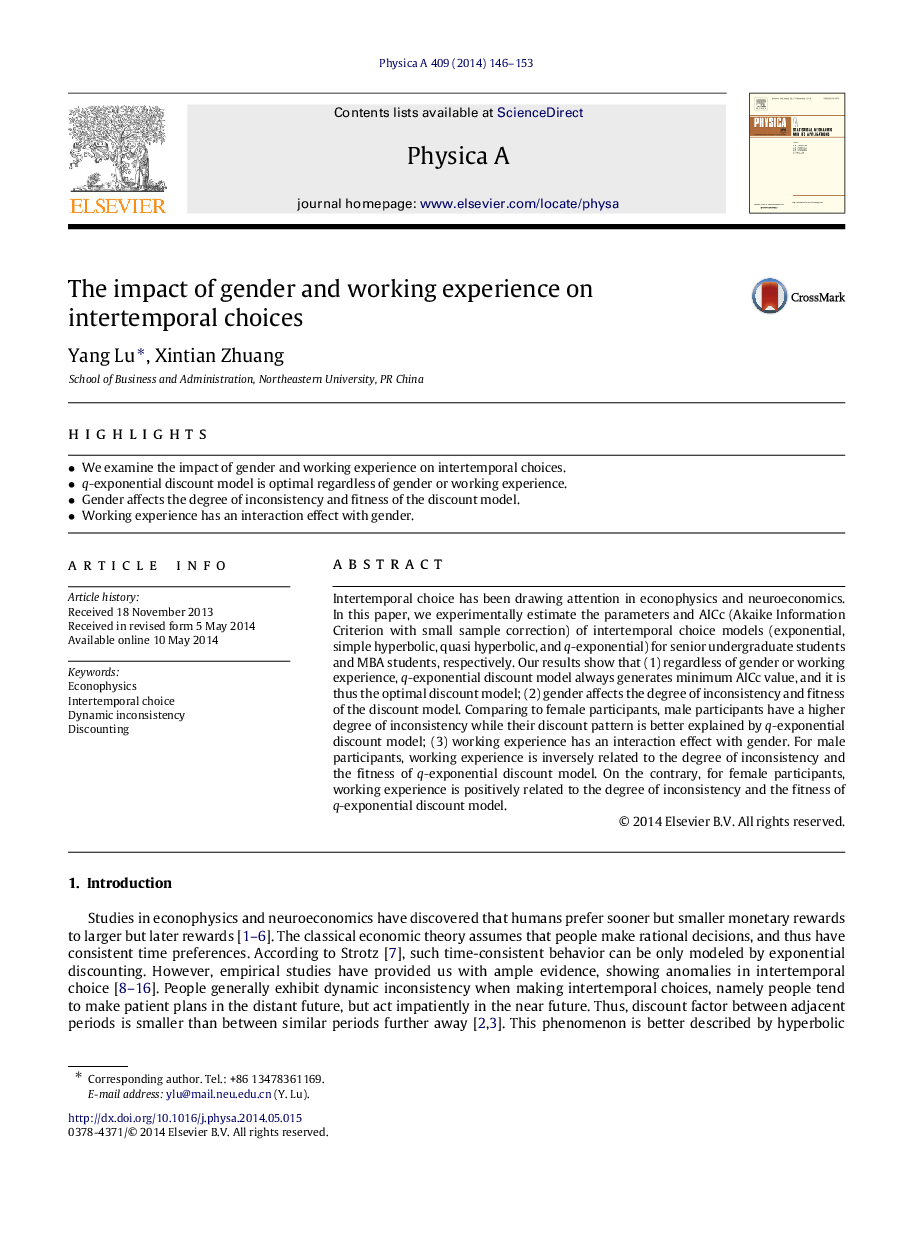| Article ID | Journal | Published Year | Pages | File Type |
|---|---|---|---|---|
| 7380662 | Physica A: Statistical Mechanics and its Applications | 2014 | 8 Pages |
Abstract
Intertemporal choice has been drawing attention in econophysics and neuroeconomics. In this paper, we experimentally estimate the parameters and AICc (Akaike Information Criterion with small sample correction) of intertemporal choice models (exponential, simple hyperbolic, quasi hyperbolic, and q-exponential) for senior undergraduate students and MBA students, respectively. Our results show that (1) regardless of gender or working experience, q-exponential discount model always generates minimum AICc value, and it is thus the optimal discount model; (2) gender affects the degree of inconsistency and fitness of the discount model. Comparing to female participants, male participants have a higher degree of inconsistency while their discount pattern is better explained by q-exponential discount model; (3) working experience has an interaction effect with gender. For male participants, working experience is inversely related to the degree of inconsistency and the fitness of q-exponential discount model. On the contrary, for female participants, working experience is positively related to the degree of inconsistency and the fitness of q-exponential discount model.
Related Topics
Physical Sciences and Engineering
Mathematics
Mathematical Physics
Authors
Yang Lu, Xintian Zhuang,
